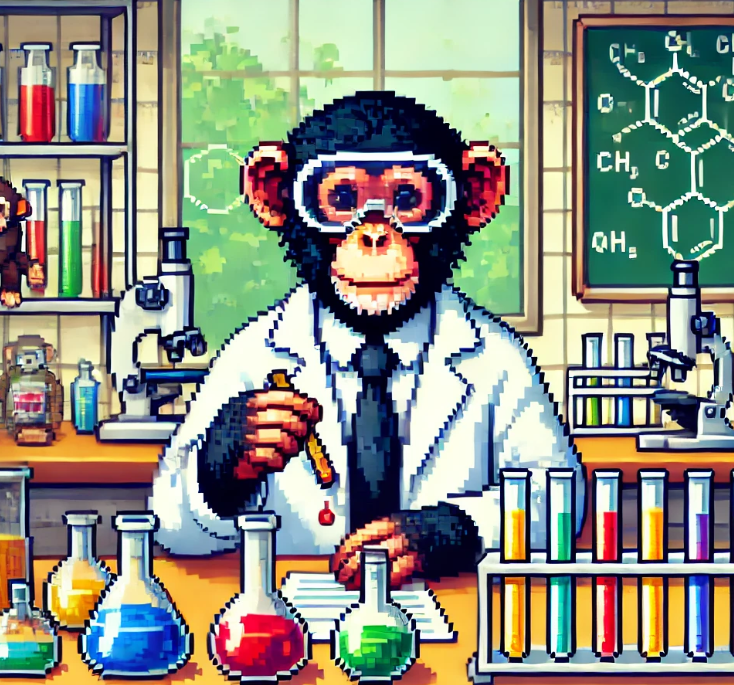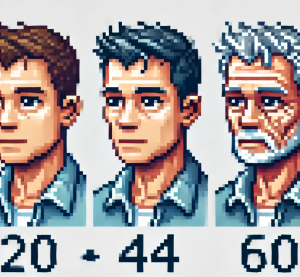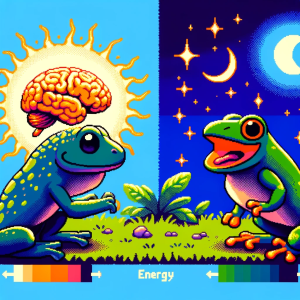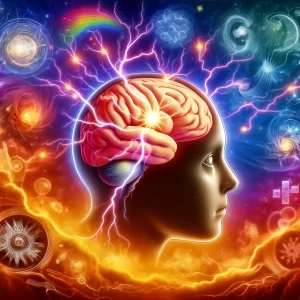
The Cost of Evolution
How Our Expanding Brains Made Us Vulnerable to Aging
When you look at a chimpanzee, do you see yourself in its eyes? You should, because, evolutionarily speaking, we’re practically family. Our brains and theirs are strikingly similar, but there’s a twist in the story—one that may explain why humans are uniquely vulnerable to the ravages of aging.
A Tale of Two Brains: The Human-Chimpanzee Connection
Imagine two close relatives who grew up together, took different paths in life, and now face entirely different challenges. This is the story of the human and chimpanzee brains. Over millions of years, both species evolved from a common ancestor, but our paths diverged, particularly in how our brains grew and aged.
Recent research reveals something fascinating: while both humans and chimpanzees experience gray matter loss as they age, the human brain’s evolution—marked by significant expansion in key areas—has made it more susceptible to age-related decline. But why did this happen? And what does it mean for us today?
The Expanding Human Brain: A Double-Edged Sword
The evolution of the human brain is nothing short of extraordinary. Over time, our brains expanded, especially in areas responsible for higher-order cognitive functions like decision-making, problem-solving, and social behavior. This growth is what gave us the ability to create art, build cities, and send rockets into space. But this evolutionary leap came with a hidden cost.
Researchers discovered a positive correlation between the areas of the brain that expanded the most during our evolution and the regions that show the most significant decline as we age. It’s like building a bigger, more complex house but finding that it’s more prone to cracks and wear over time.
This correlation was not found in chimpanzees. Despite their brains also shrinking with age, the areas that expanded in their evolutionary history don’t seem to be the ones most affected by aging. This suggests that the very aspects of our brains that make us uniquely human—our advanced cognitive abilities—are also what make us more vulnerable to conditions like Alzheimer’s and other neurodegenerative diseases.
The “Last-In-First-Out” Hypothesis: The Evolutionary Trade-Off
So why are these advanced areas of the brain so susceptible to aging? Scientists refer to this as the “last-in-first-out” hypothesis. Essentially, the brain regions that evolved most recently are the last to fully mature and the first to decline. In humans, these areas include parts of the prefrontal cortex, which is involved in planning, decision-making, and social interactions.
Think of it this way: the brain is like a highly sophisticated piece of software that has been updated numerous times. The most recent updates (our advanced cognitive functions) are more complex but also more prone to bugs (age-related decline). Over time, these bugs can cause significant problems, leading to the cognitive decline many experience in later life.
The Real-World Impact: Why This Matters Now
Understanding the link between brain expansion and aging isn’t just an academic exercise—it has real-world implications for how we approach aging and neurodegenerative diseases. As our global population ages, the incidence of diseases like Alzheimer’s is expected to skyrocket. By understanding the evolutionary reasons behind our brain’s vulnerability, we can better target treatments and preventative measures.
For instance, knowing that certain brain areas are more vulnerable could lead to early diagnostic markers or interventions designed to protect these regions. Imagine a future where we can slow down or even prevent the cognitive decline that comes with aging, allowing people to live not just longer lives but healthier ones.
Join the Conversation
As we uncover more about the human brain’s unique vulnerabilities, it’s worth asking ourselves:
- What trade-offs are we willing to make for the sake of progress?
- How can we use this knowledge to improve the quality of life as we age?
These are questions that touch on the very core of what it means to be human, and they’re ones we should all be asking as we move forward into an uncertain future.
Explore and Learn with Science:
Dive into groundbreaking research and inspiring stories with ‘This Week in Science’! Perfect for teachers and science enthusiasts, our free weekly newsletter expands your horizons in teaching and learning. Join us today and reshape your engagement with science. If you liked this blog, please share it! Your referrals help This Week in Science reach new readers.



